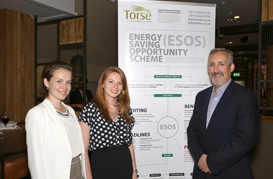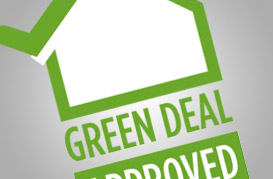Legislation
Sep
 At the moment, only businesses that have at least one site and use more than 5 megalitres are able to change their water supplier in England. The water industry in England will be opened up to competition in April 2017. Therefore, from April 2017 Torse will be able to offer water supplies in addition to its gas and electricity services. Like England, Wales will also be part of the upcoming deregulation, however it is still going to be subjected to a minimum threshold. The requirement in Wales is that customer usage must exceed a minimum of 50 megalitres of water a year before they are eligible to switch supplier. Scotland was the first to have its non-domestic water deregulated in 2008. continue
At the moment, only businesses that have at least one site and use more than 5 megalitres are able to change their water supplier in England. The water industry in England will be opened up to competition in April 2017. Therefore, from April 2017 Torse will be able to offer water supplies in addition to its gas and electricity services. Like England, Wales will also be part of the upcoming deregulation, however it is still going to be subjected to a minimum threshold. The requirement in Wales is that customer usage must exceed a minimum of 50 megalitres of water a year before they are eligible to switch supplier. Scotland was the first to have its non-domestic water deregulated in 2008. continue
- Bookmark :
- Digg
- del.icio.us
- Stumbleupon
- Redit it
Sep
 Torse Limited is celebrating the end of its very successful 2015 summer internship programme. This is an experimental scheme, run in conjunction with the University of Nottingham, to encourage students to look graduate employment opportunities in the East Midlands.Torse is one of the UK’s leading independent energy brokerage and consultancy organisations, having placed over 100,000 business energy contracts since 1994 and providing hundreds of ongoing clients with support for their billing, payments and contract obligations. continue
Torse Limited is celebrating the end of its very successful 2015 summer internship programme. This is an experimental scheme, run in conjunction with the University of Nottingham, to encourage students to look graduate employment opportunities in the East Midlands.Torse is one of the UK’s leading independent energy brokerage and consultancy organisations, having placed over 100,000 business energy contracts since 1994 and providing hundreds of ongoing clients with support for their billing, payments and contract obligations. continue
- Bookmark :
- Digg
- del.icio.us
- Stumbleupon
- Redit it
Jul
 The Climate Change Act 2008 legislated for a reduction in our carbon emissions and set legally binding carbon budgets across all sectors of the UK economy – including our homes, communities and workplaces and as part of this the government has made a pledge to reduce carbon emissions by 34% (of 1990 levels) by 2020 and 80% by 2050. UK domestic buildings are among the least efficient in the world and account for 38 per cent of the UK’s total greenhouse gas emissions. The Green Deal scheme has been set up by the government to make improvements in the efficiency of these buildings more accessible to the general population and aims to do the following:
The Climate Change Act 2008 legislated for a reduction in our carbon emissions and set legally binding carbon budgets across all sectors of the UK economy – including our homes, communities and workplaces and as part of this the government has made a pledge to reduce carbon emissions by 34% (of 1990 levels) by 2020 and 80% by 2050. UK domestic buildings are among the least efficient in the world and account for 38 per cent of the UK’s total greenhouse gas emissions. The Green Deal scheme has been set up by the government to make improvements in the efficiency of these buildings more accessible to the general population and aims to do the following:
- Reduce the demand for energy
- Reduce dependence on imported fuel
- Meet carbon reduction targets
- Achieving affordable warmth
- Avoiding upfront cost
Applied to the process of improvement is the “Golden Rule” – which ensures that repayments for the work completed to improve energy efficiency do not exceed the savings made by these improvements. So in effect, this is a medium to long term solution in terms of financial savings but has an immediate effect in terms of carbon reduction. continue
- Bookmark :
- Digg
- del.icio.us
- Stumbleupon
- Redit it
Jun
 Climate Change Agreements (CCA’s) were introduced by the UK government in April 2001 as an incentive for businesses to reduce their energy bills and as a result, their carbon emissions. They are voluntary agreements containing targets for eligible industry sectors. This was introduced after the government implemented an energy tax (levy) which appeared directly on all business’s energy bills known as Climate Change Levy (CCL). CCL was originally intended to be tax neutral with a corollary reduction in National Insurance contributions. continue
Climate Change Agreements (CCA’s) were introduced by the UK government in April 2001 as an incentive for businesses to reduce their energy bills and as a result, their carbon emissions. They are voluntary agreements containing targets for eligible industry sectors. This was introduced after the government implemented an energy tax (levy) which appeared directly on all business’s energy bills known as Climate Change Levy (CCL). CCL was originally intended to be tax neutral with a corollary reduction in National Insurance contributions. continue
- Bookmark :
- Digg
- del.icio.us
- Stumbleupon
- Redit it




